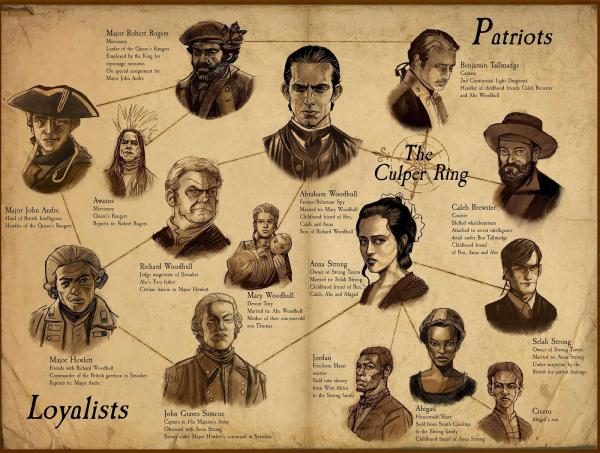(Geopolitics/History)

Long before 007, there was 711. Unlike James Bond, the owner of this secret code was a real person: George Washington, who waged intelligence warfare against the British Empire. His legendary honesty was matched by his legendary deception. Through subterfuge, he helped secure American independence.
For several years, the Revolutionary War did not go well, and the thirteen colonies wavered between hope and despair. When the fortunes of Washington's Continental Army hit rock bottom, his Culper Spy Ring sprang into action, a timely move to save the day, so we're told.
Culper operatives like Anna Strong, a woman with nerves of steel, used her laundry line to signal the presence of British patrols, communicating critical information to her fellow patriots. Caleb Brewster, a daring seafarer, smuggled messages across enemy lines, braving the dangers of the open sea. Thanks to the Culper Spy Ring, American Patriots gave British Loyalists a hard time.
While success stories like these should be taken with a grain of salt, Washington's espionage network did prove instrumental to the American Revolution. Ultimately, Britain lost to America in a manner reminiscent of America's later loss in Vietnam. *
In July 1790, Congress passed the "Secret Service Fund" provision as part of a broader appropriations bill. With such legislative support, President Washington financed a network of agents and informants both domestically and internationally, setting a precedent for the development of intelligence practices in the United States. These efforts evolved significantly over the centuries, culminating in the creation of formal institutions like the Central Intelligence Agency (CIA) in 1947.
Author: renqiulan
* In both cases, third parties played a crucial role: France for America, and Russia, together with China, for Vietnam.
|
